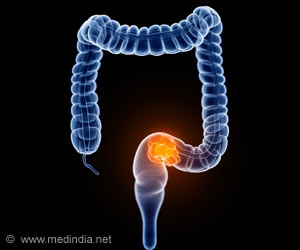The father’s dietary habits alters epigenetic patterns in the genome, and this s transferred to some degree to the next generation through the sperm.
Highlights
- Child development is influenced by the exposure the father is exposed to, reveals a new animal study.
- A diet rich in folic acid, methionine and vitamin B12 of the father weakens the activity of genes due to DNA methylation.
- The intake of high concentrations of such methyl donors in the form of energy drinks or folic acid pills could also have side effects in humans.
The intake of high concentrations of such methyl donors could also have side effects in humans, for example if they consume excessive amounts of energy drinks or folic acid pills. Dan Ehninger and colleagues report on these findings in the journal "Molecular Psychiatry".
Influence of Father’s Diet in Child
Evidence is accumulating, at least in animal studies, that child development is affected not only by the mother's diet and lifestyle prior to conception, but also by environmental factors the father is exposed to.
For example, if male rodents are put on a diet particularly rich in fats, they will pass on a tendency to become diabetic to their offspring.
Methyl donor-rich diet
Scientists put male mice on a diet rich in methyl donors and cofactors required for methyl group metabolism: This diet contained high concentrations of methionine, folic acid, vitamin B12, choline, betaine and zinc.
A second group of male rodents was given a standard diet. After six weeks, the male mice were mated with female mice and their offspring subjected to careful analyses.
Abnormality in Behavior, Brain Development
The result: the offspring of the male mice fed with methyl donors performed less well in all learning and memory tests. "We were able to show that even a transient change in the paternal diet can cause impaired learning skills in offspring. This affected in particular the ability to properly learn a spatial navigation task," says Ehninger.
Abnormalities were found not only in the animals' behavior, but also in their brains: Nerve connections in the hippocampus, a brain region which is important for memory -- reacted quite sluggishly to electrical stimuli, indicating that their adaptiveness -- the so-called neuronal plasticity -- was impaired in offspring mice. In line with this, a gene called "Kcnmb2" which is involved in neuroplasticity, was downregulated in progeny of the fathers that received the methyl donor-rich diet.
Food Fortification, Supplements could have side effects
Though these are the results of animal experiments, humans can also be exposed to high doses of methyl donors, says Ehninger.
"Methyl donor deficiencies are well known to have adverse health consequences that can be prevented with dietary supplements. However, our study suggests that excessive consumption may be associated with adverse effects as well," says the scientist.
Reference
- Ehninger. D et al., A paternal methyl donor-rich diet altered cognitive and neural functions in offspring mice, Molecular Psychiatry (2017) http://dx.doi.org/10.1038/MP.2017.53.
Source-Medindia
















